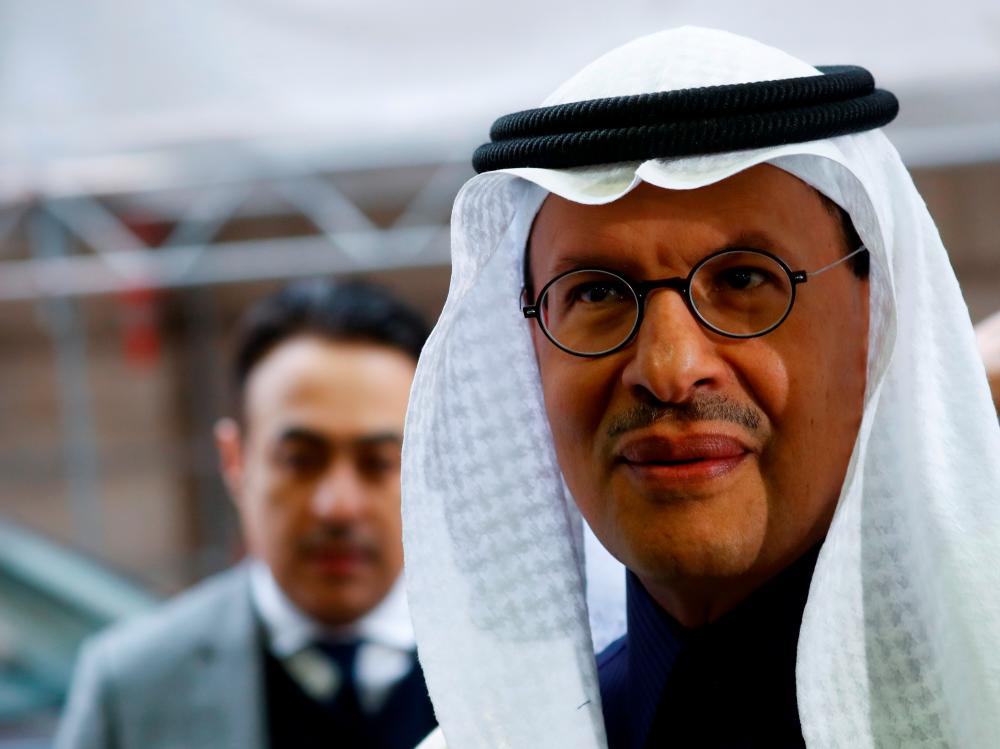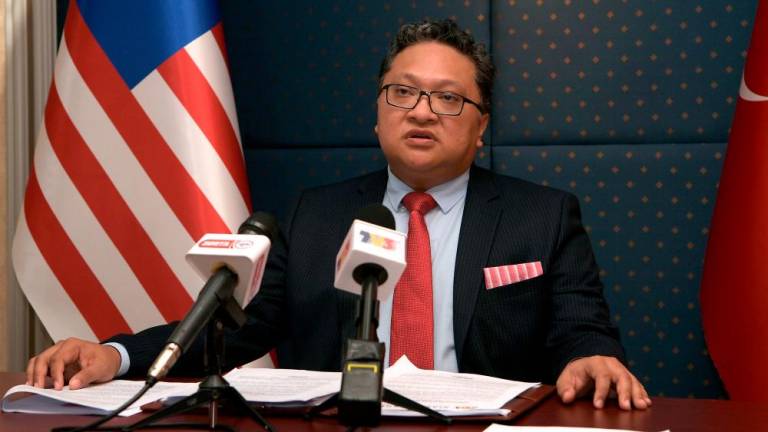LONDON/DUBAI/MOSCOW: The Organization of the Petroleum Exporting Countries (Opec) and allies such as Russia will ease record oil supply curbs from August as the global economy slowly recovers from the coronavirus pandemic, Saudi energy minister Prince Abdulaziz bin Salman (pix) said yesterday.
Opec and its allies, known as Opec+, have been cutting output since May by 9.7 million barrels per day, or 10% of global supply, after the virus destroyed a third of global demand.
After July, the record cuts are due to taper to 7.7 million bpd until December. Prince Abdulaziz said effective cuts would be deeper due to compensation by countries which overproduced in previous months.
Opec+ documents seen by Reuters showed that the cuts will ease to around 8.54 million bpd in August and September following compensations by Iraq, Nigeria, Angola, Russia and Kazakhstan.
"As we move to the next phase of the agreement the extra supply resulting from the scheduled easing of production cut will be consumed as demand continues on its recovery path," said Prince Abdulaziz.
He made his remarks as a panel known as the Joint Ministerial Monitoring Committee met yesterday to recommend the next level of cuts.
An Opec+ source said the panel later backed recommendations on both the easing of cuts and additional compensations.
Prince Abdulaziz also said Saudi oil exports in August will remain the same as in July because some 0.5 million bpd of extra barrels the kingdom was set to pump will be used domestically.
Oil prices have recovered to almost US$43 a barrel from a 21-year low below US$16 in April.
The recovery has allowed some US producers to resume production. Russia and Opec rely heavily on oil revenue but they will be keen not to push prices too high to give a further boost to rival US oil output growth.
On Tuesday, Opec said it saw demand recovering by 7 million bpd in 2021 after falling by 9 million this year.
However, fears of a second wave of coronavirus are weighing heavily on the market and Opec+ said in documents seen by Reuters that "a second strong wave" could deepen the hit to demand to 11 million bpd this year.
Under such a negative scenario, Opec would fail to address a huge global stocks overhang by the year end, it said.
Such a scenario would also put in jeopardy Opec's plans to supply an extra 6 million bpd of crude to the market next year. Opec+ will hold the next JMMC meeting on Aug 18.
Meanwhile, in New York, oil prices rose 1% yesterday, supported by a sharp drop in US crude inventories, but further gains were limited as Opec and its allies are set to ease supply curbs from August as the global economy gradually recovers from the coronavirus pandemic.
Brent crude was up 64 cents, or 1.5%, at US$43.54 a barrel at 1459 GMT, and US West Texas Intermediate crude rose 53 cents, or 1.3%, to US$40.82 a barrel.
Prices were boosted after data from the Energy Information Administration showed US crude inventories fell 7.5 million barrels last week, compared with analysts' expectations in a Reuters poll for a 2.1 million-barrel drop.
"The story of the report is we will see more draws in the coming weeks," said Phil Flynn, analyst at Price Futures Group. "We will see tightening of supplies and the market is signalling that we are going to need more oil pretty soon, probably by August."
"Opec+ managed to orchestrate the greatest balancing act ever seen in oil market history. But now, the alliance is ready to start concluding the show," said Rystad Energy's senior oil markets analyst Paola Rodriguez-Masiu.
Prices were also supported by promising early data for a potential Covid-19 vaccine, but the resurgence of the coronavirus in the US and other countries still kept traders on edge. – Reuters













